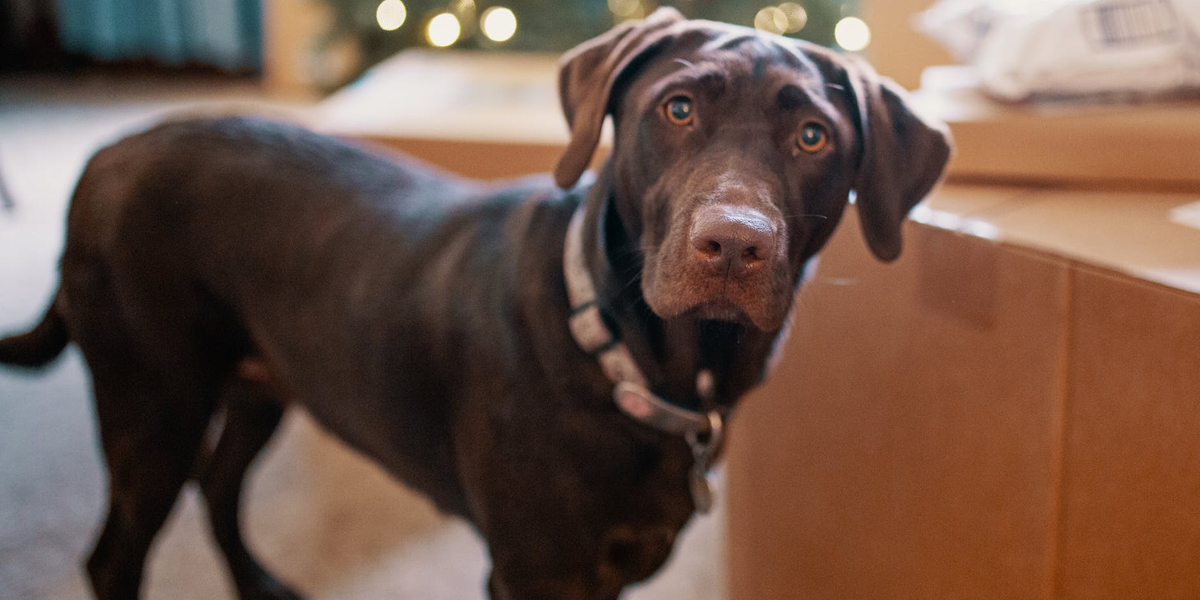Taking too long? Close loading screen.

August 4th
We all enjoy when our Labs shower us with love. But sometimes this affection can go a bit overboard, especially when your dog gets anxious whenever you leave.
It can be difficult for many Labs to spend time alone. They are social animals, and are at their happiest when surrounded by people and other dogs. Many Labs will act up by barking, crying, and scratching whenever you leave them alone.
Although your dog may always prefer the company of others, you can train them to at least tolerate being alone. Here’s how you can teach your Lab to manage on their own.
Crate training is an essential part of teaching your Lab to be alone. You should start out by leaving your dog in their crate for short periods. Make sure that you leave the area so that they believe you are gone.
At first, they may bark and scratch. Although this can be heartbreaking, especially when they’re a puppy, it’s crucial that you don’t rush back into the room at the first sign of distress.
After the alloted amount of time, return and let your Lab out, giving them plenty of praise. Your dog will learn that you always come back, so there’s no reason to get so anxious. As your Lab gets used to their crate, you can increase the amount of time you leave them alone.
A good starting time is around 15 to 30 minutes, depending on how sensitive your lab is. As they adjust, you can start leaving them alone for an hour or so. Just make sure you give them potty breaks if you leave them for long periods.
As your dog matures and you begin to trust them more, you can consider leaving them alone in the house. You can start with one room, and then give them freer reign. A large area is less likely to make them anxious, so long as they are properly potty trained.
Dogs like food almost as they like the company of people and dogs. You can take advantage of this to make their alone time more bearable.
Let them eat when they are alone so that they associate solo time with food. They’ll soon learn that being alone may mean they get a tasty reward. Plus, eating keeps them distracted, so they won’t be thinking about how much they miss you.
Young Labs like to play and run around. A lot. But you need to show them that play time is always accompanied by down time.
As you play with your Lab, stop them and make them lie down. If your dog is trained, you can ask them to stay then leave the room. After a short period, resume play and give your dog a treat.
Start with short intervals of about 30 seconds. As your Lab learns, you can continue to extend the length of the calm periods.
What’s the point of this? It teaches your Lab how to calm down even when they’re worked up. It also shows them that playtime follows rest, so they’ll have something to look forward to. When you go to put them in their crate, they’ll be more patient.
This step can be hard for many dog owners. The last thing you may want to do before leaving for work is ignore your Lab. But giving your dog less attention before you leave home can actually make it easier for them to manage being alone.
If you shower your dog with lots of love and then leave all of a sudden, they may be confused. One minute they’re getting all of the hugs and kisses in the world, and now they’re alone in their crate.
By giving your dog less attention during the half hour before you leave, you make it easier for them to adjust to your absence. You don’t have to ignore them completely, but try to get them to lie down and rest.
If you notice that your Lab is still having issues being alone, that could be a sign that they have a severe case of separation anxiety. To deal with this, you may have to train your Lab more slowly than you would most other dogs.
Symptoms of separation include non stop barking, crying, scratching, and chewing. Even if you are only gone for a few minutes, your Lab may begin to bark loudly and yelp.
To deal with separation anxiety, start by leaving your dog alone for very short periods. This may be as short as 5 minutes. Slowly add more and more time and see how your Lab responds.
You can also reach out to a professional to help you structure your training. You should also speak to your vet about your dog’s separation anxiety, as there could potentially be a medical cause.
Labs are the perfect companion, with a gentle and loving nature that makes them well suited to just about any family. At Uptown Puppies, we connect you with some of the best Lab breeders and companies around with our puppy finder.
We only work with companies and breeders who follow the highest ethical standards. That means you’ll never get a dog from a puppy mill or backyard breeder.
Find the Perfect Puppy